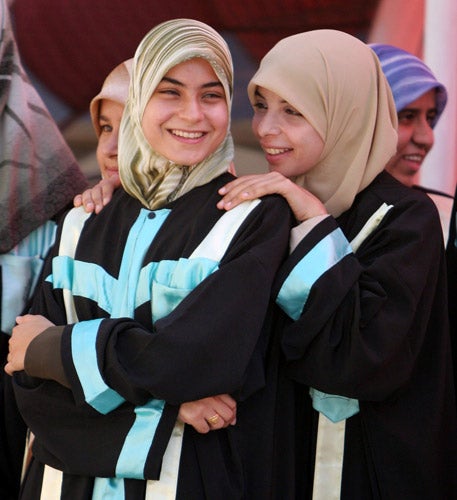Red tape prevents Iraq's scholars from entering the UK

The violence and unrest that followed the invasion of Iraq in 2003 left that country's once-great universities on their knees. Looters stole everything that was not bolted down, and what remained was burned beyond recognition. More than 300 academics were killed, lecturers and students stayed at home and teaching and research slowed to a standstill, according to a report released last week.
In the past couple of years, however, things have begun to improve. The country has become safer and its new £1bn education initiative, launched in January by the Prime Minister Nouri al-Maliki, has forced the British Government to act. At the launch of the Iraqi education report last week, Foreign Office ministers elaborated on how much Britain would be prepared to contribute towards al-Maliki's initiative, which will provide scholarships to 10,000 students to study abroad over five years, largely, it is hoped, at universities in America or Britain.
When the Iraqi premier visited the UK in April, it was agreed that initially 250 of these scholarship students would come to the UK. But last week's report from the International Unit of Universities UK, published with the British Universities Iraq Consortium (BUIC) and the former Department for Innovation, Universities and Skills, shows just how difficult this figure will be to achieve. For a start, it is almost impossible for Iraqis to get visas to come to the UK, because they must apply at British embassies in Jordan, Lebanon or Syria. "In a technical sense, the UK has made its Iraqi student recruiting pipeline beholden to Jordanian or Lebanese immigration policies and practices," says the report. "In addition, Iraqi visa applicants often have to wait many days, or even weeks, to be granted a visa appointment. This is not a sustainable situation."
Michael Thomas, the director general of the Middle East Association, leapt up to tell Ivan Lewis, the new Foreign Office minister, that three heads of Iraqi chambers of commerce had been invited to Britain but had been unable to obtain the necessary visas. "It was awful," he said. "It would be better if we didn't invite them in the first place. Our European competitors are issuing visas in northern Iraq. If you really want to help us, you will get the visa situation sorted out as soon as possible."
Lewis promised to take up the issue with the Border Agency and with Home Office ministers, at which point Chris Bowers, the deputy head of the Iraq Group at the Foreign Office, said things were already happening, after al-Maliki's visit to Britain brought results. "It looks as if we are in a position to take biometric information in Baghdad, so people won't have to travel to Beirut or Jordan for visas," he said. "As the situation in Iraq continues to normalise, that visa process will become easier. We are pretty confident there will be something in place for the scholarship students."
But another roadblock to getting the 250 scholarship students to Britain this autumn is the lack of English language test centres in Iraq, which means Iraqis must travel to Jordan, Saudi Arabia or Syria to take the exam required of all overseas visa applicants. Again, things are happening on this front. "The British Council says [it is] going to set up a test centre in Erbil," John Withrington, the chairman of the BUIC, told the meeting.
Finally, David Lammy, the Higher Education minister, announced that the Government's new Department for Business, Innovation and Skills would be giving £300,000 over two years to train middle managers at Iraqi universities. This scheme is linked to the £3m Iraqi higher-education partnership established by the Department for International Development. "The pace at which universities in Iraq can move forward will depend on the ability of those in the universities to use best practices around the world," said Lammy.
Some observers believe £300,000 is insufficient compensation for the damage wrought on Iraqi higher education as a result of sanctions and the war, but Lewis rejected that notion, saying: "I think £300,000 is a large sum of money. To suggest we are responsible for the decline in their higher education system is a false analysis. The best interests of the people of that country are served by us looking forward."
After the meeting, Withrington said he was optimistic that at least some of the 250 Iraqi students destined to come to the UK would make it. "If the British Council can organise language testing and visas, this can be sorted out," he added. "It's important to try to make it possible."
One important question, however, is whether the Iraqi visitors will return home to their country when their studies end.
UK Higher Education Engagement with Iraq, UK Higher Education International Unit (www.international.ac.uk)
Join our commenting forum
Join thought-provoking conversations, follow other Independent readers and see their replies
Comments
Bookmark popover
Removed from bookmarks